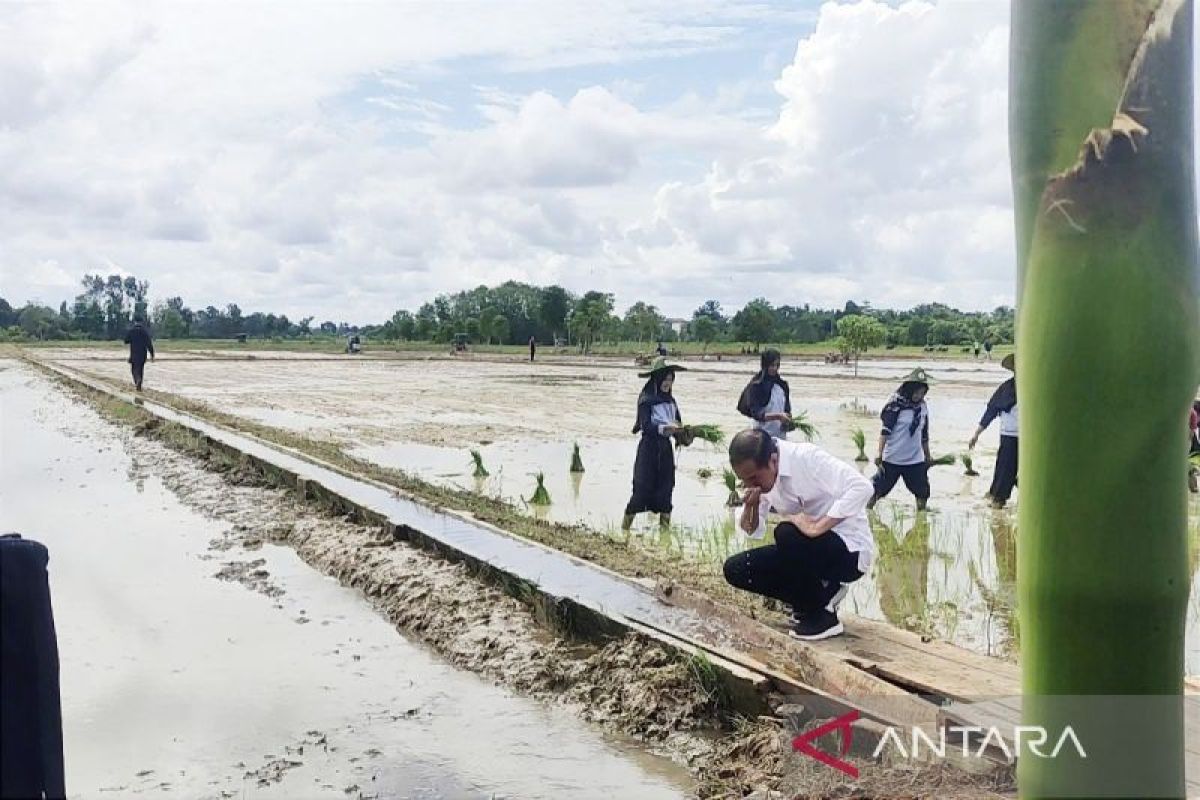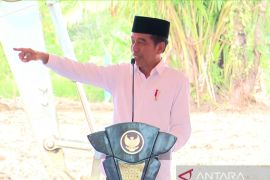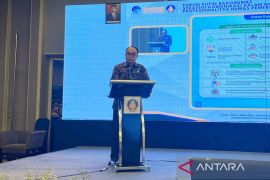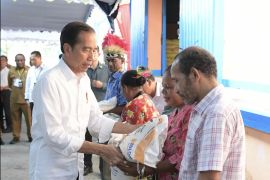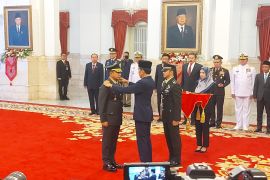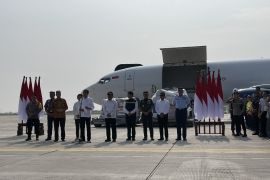"Almost all countries are affected by the heat waves and long droughts. Hence, agricultural and rice productivity declines. This pumping program aims to anticipate that," Jokowi remarked during his inspection of the pumping installation on agricultural land in Bapeang Village.
The "pompanisasi," or the pumping installation program, promoted by the Ministry of Agriculture aims to increase the national Crop Planting Index.
With the program, the planting period earlier carried out only once a year can now be done twice or thrice a year.
President Jokowi explained that the pumping program aims to anticipate a heat wave expected to hit Indonesia that will impact the country's agricultural productivity.
The head of state pointed out that this heat wave does not occur only in Indonesia but also in almost all countries. Several countries that earlier exported rice have now halted exports of the commodity to meet their own needs.
"The Meteorology, Climatology, and Geophysics Agency (BMKG) has estimated a heat wave to occur from July to October onwards, which will cause drought, so we must be prepared and anticipate it through pumping," he emphasized.
The pumping is basically to help farmers irrigate rice fields. This may sound trivial, but it majorly impacts agricultural productivity.
Rice fields in Bapeang Village are located higher than the river, so the water cannot flow there. However, with the help of pumping, farmers in the village can irrigate their rice fields even during the dry season. In this way, the farmers can maintain their productivity.
Through this program, the government aims to strengthen food security to reduce dependence on imports to fulfill domestic needs.
Related news: President seeking to increase pump aid for farmlands
Related news: Govt distributing water pumps to provinces to anticipate drought
Translator: M Hidayat, Devita M, Kenzu
Editor: Rahmad Nasution
Copyright © ANTARA 2024
